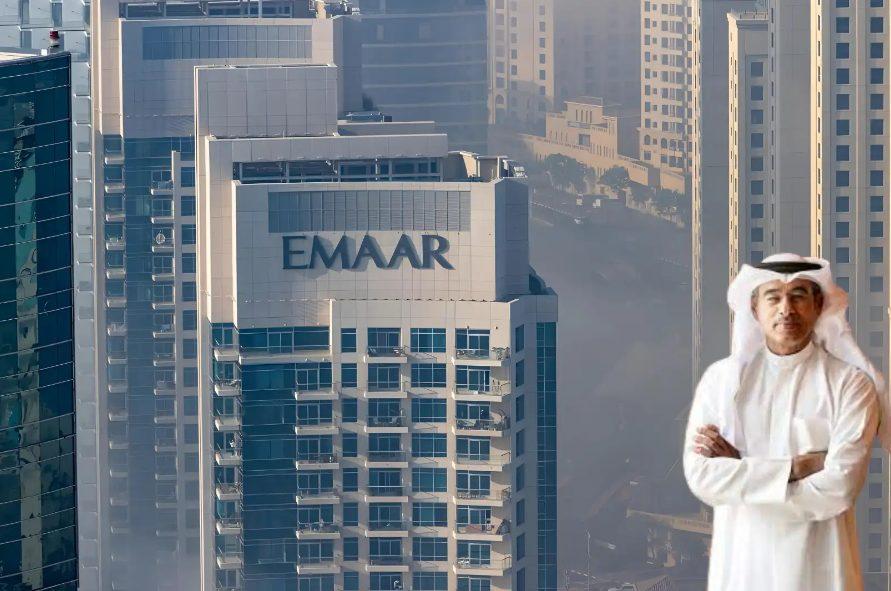
Dubai’s Top Property Developers: Who Should You Buy From?
Selecting the appropriate property developer is just as crucial to real estate investing as choosing the correct property. With so much to choose from in Dubai’s expanding market, you may be asking yourself, “Who should I buy from?” In this guide, Dubai’s Top Property Developers: Who Should You Buy From?, I’m here to assist you in making an informed choice by spotlighting some of the best real estate developers in the area as someone who has experience navigating Dubai’s real estate market. Also see: The Best Financing Options for Buying Property in Dubai 1. Understanding Dubai’s Real Estate Market Dubai’s real estate market has drawn both domestic and foreign investors, making it a hub of activity. Magnificent constructions ranging from huge homes to opulent flats dot the skyline of the city. But with enormous potential also come hazards, thus it’s important to work with trustworthy developers that produce high-quality work at a reasonable price. 2. Why the Right Developer Matters Selecting the ideal real estate developer can have a profound impact on your investing experience. A trustworthy developer meets deadlines and legal requirements while also guaranteeing the quality of the work. I discovered this the hard way when delays and subpar quality caused my first investment to lose money. I then understood how crucial it is to conduct my study. Also see: How to Choose the Right Property for Investment in Dubai 3. Top Property Developers in Dubai Let’s dive into some of the top property developers in Dubai that I believe are worth considering: Emaar Real Estate One of the most well-known brands in Dubai’s real estate market is Emaar Properties. Emaar, well-known for landmark constructions like the Burj Khalifa and Dubai Mall, is renowned for producing high-end real estate with first-rate amenities. Their projects are popular with investors since they frequently see strong appreciation. I was always in awe of the exquisite finishing and meticulous attention to detail when I toured their developments. Damac Real Estate Another well-known developer that has had a big impact on the Dubai skyline is Damac Properties. They provide a selection of opulent homes, such as villas and apartments, that frequently have distinctive styles and opulent amenities. Projects like Damac Hills and Akoya Oxygen are well-liked by purchasers seeking an upscale way of living. I was at one of their property debuts, and I was astounded by the amount of sophistication they displayed. Also see: Why the World’s Wealthiest are Flocking to Dubai’s Real Estate Nakheel A government-owned company, Nakheel is well-known for creating landmark projects like the Palm Jumeirah and has established a reputation for excellence and creativity in development. Their projects frequently combine retail, recreational, and residential areas to create thriving communities. Consider Nakheel’s developments if you’re searching for homes that provide a distinctive living experience. Dubai properties Across the emirate, Dubai Properties is committed to developing connected communities. Their projects include everything from opulent villas to reasonably priced homes. For investors, their solid track record of on-time project delivery is an important consideration. Because they place a strong emphasis on establishing environments where families may flourish, I was drawn to their community-focused approach. Also see: Top 5 Strategies for Navigating Dubai’s Real Estate Market 4. Factors to Consider When Choosing a Developer Here are some important considerations to bear in mind when choosing which developer to collaborate with: Reputation: Seek out developers who have a good track record and endorsements from prior customers. Do some online research and check reviews to determine how trustworthy they are. Build Quality: Visit their finished projects to evaluate the build and finish quality. Try to seek input from present residents by having a conversation with them. Financial Stability: A developer with sound finances is less likely to experience problems that could cause your project to be delayed. Examine their track record on the market and finances. Project Schedules: You can establish reasonable expectations for your investment by learning about a developer’s past performance with regard to project completion schedules. Customer service: A positive customer service experience can facilitate your purchase. Verify the degree of receptiveness and encouragement the developer is during the purchasing process. 5. Making Your Decision The decision of whom to purchase real estate from in Dubai ultimately boils down to your investment objectives and personal tastes. As I looked into several possibilities, I discovered that working with a reliable developer greatly improved the quality of my experience. As long as you research the market and make smart decisions, investing in Dubai’s real estate market may be quite profitable. By considering the information in Dubai’s Top Property Developers: Who Should You Buy From?, you will be well on your way to making a wise investment if you take into account the developers that were previously mentioned and have the following considerations in mind. In summary So, in Dubai, who should you buy from? Even though there are a lot of top-notch developers available, you can choose the best one for your investment by doing your homework and learning what each one has to offer. In this context, “Dubai’s Top Property Developers: Who Should You Buy From?” you can successfully navigate Dubai’s real estate scene and position yourself for success in this fast-paced industry if you have the correct partner. Happy making purchases!










